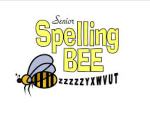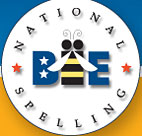 Last Saturday evening I had the privilege of being the Pronouncer and moderator of the local level of the Illinois State Senior Spelling Bee. In addition to having loads of fun–I was channeling Alex Trebek and Will Shortz like crazy–I learned that Evanstonians are great spellers. There were 17 participants, ages 50 and up, and all lasted many more rounds than we expected. There were many “sudden death” rounds before one of the two semi-finalists spelled two words in a row correctly after the other misspelled one. The event was sponsored by the EPL, Fleetwood-Jourdain Community Center, and the Levy Center.
Last Saturday evening I had the privilege of being the Pronouncer and moderator of the local level of the Illinois State Senior Spelling Bee. In addition to having loads of fun–I was channeling Alex Trebek and Will Shortz like crazy–I learned that Evanstonians are great spellers. There were 17 participants, ages 50 and up, and all lasted many more rounds than we expected. There were many “sudden death” rounds before one of the two semi-finalists spelled two words in a row correctly after the other misspelled one. The event was sponsored by the EPL, Fleetwood-Jourdain Community Center, and the Levy Center.
The first and second place winners, Mel Zellman and Bruce Hirsch respectively, will advance to the regional level competition in Park Ridge on June 3rd. Third place was taken by Jeff Balch. The final word was “scungilli,” an edible  marine snail often prepared in a marinara sauce.
marine snail often prepared in a marinara sauce.
So where did all this competitive spelling come from? Why is it called a “bee?” I was delighted to hear this news feature on NPR’s “Sunday All Things Considered” which explained the origins and importance of spelling bees. Hint: the term “bee” has absolutely nothing to do with the flying insect.
Finally, this is indeed Bee Week. The young spellers are in Washington, D. C. competing in the early rounds of the Scripps National Spelling Bee. ESPN will televise the preliminary rounds this Wednesday; the semi-finals and finals on Thursday. The link to the Scripps site has the exact schedule.
Barbara L.


